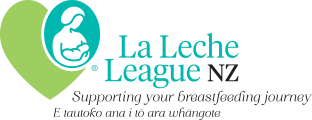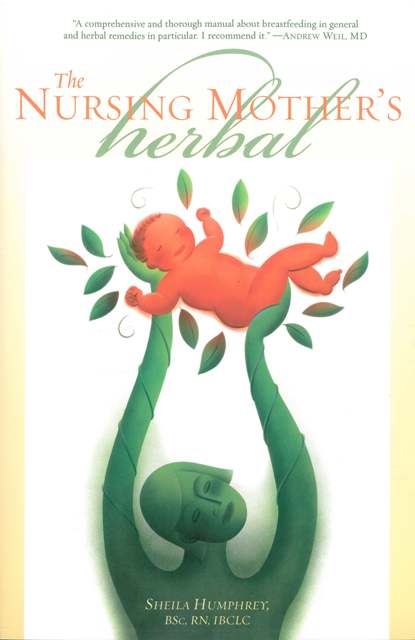Mothering Through Breastfeeding
When I had my first baby, I had already decided to give breastfeeding a go. But the main
focus for me during pregnancy was coping with sickness, and the approaching labour.
The antenatal classes had dealt with labour pain and management and the stages of
labour but my birth plan went out the window, when at 37 weeks, I had a haemorrhage at
1.30am (whilst in bed trying to pretend to be asleep). I ended up having a very scary time
trying to make the midwife believe my story over the phone. She said, “Is it just a show
dear?” I really had to convince her that it was more of a flood than a show!
So my husband and I raced to the maternity ward and met the midwife shortly after. She
spent the next half an hour reassuring us, “Baby is OK”. Shortly after, my Lead Maternity
Carer (a General Practitioner) arrived looking very brassed off at being woken up at this
hour. He heard my story and decided to break my waters. It was incredibly painful. I was
in constant agony and I couldn’t feel the contractions through the pain. The waters
contained blood among other things, so the he rang the specialist on call who then
suggested they prepare me for a Caesarean. A general anaesthetic was required because
of the speed needed and blood pressure problems.
Suddenly everything moved very quickly. Going into the lift I remember saying to the
anaesthetist, “Am I going to die?” and him replying, “I don’t think so”. At 4am, Kieran was
born rating just two on the Apgar scale. An hour after he was delivered, I returned to my
room – no baby there yet. He had been put into the special care ward. He had also been
given formula as his blood sugars were low.
I was lying down feeling so drugged I could hardly stay awake. I was wheeled down to
special care to be handed my son and give him his first feed five hours after he was born.
I will never forget that feeling for as long as I live – holding and feeding for the first time
ever. All I can say is thank goodness for breastfeeding.
Kieran was a baby who liked to be up all night, and sleep for long spells during the day for
the first few months. I fed him on demand and felt this was one major way to regain the
loss I felt from not witnessing his birth. I found breastfeeding very challenging. I suffered
frequently from mastitis. I became quick in recognising the symptoms and promptly sought
help after a couple of bouts. I found homeopathic remedies worked sometimes
(Echinacea, Erysidoron, and Phytallaca). But most times, I needed antibiotics. My doctor
provided me with a backup
prescription just in case. He was an excellent support person.
I also had nipple trouble initially and I used Lansinoh cream which was fantastic with
healing them. I found the ionozone treatment at Hutt Hospital a great help too.
When I was desperate with doubts I had a great mentor in La Leche League Leader, Fran
Crossland, who gave me fantastic advice and support, and a Plunket nurse who took time
to more clearly explain how babies feed. Luckily my husband was also in favour of me
providing the best food for his child.
However I had my lowest point when Kieran was 10 weeks old. I phoned the Plunket line
desperate for help. The nurse advised me (after hearing my story of recurring mastitis) to
give up. I put the phone down and burst into tears. My husband (also my rock) turned and
said, “You do what you want to do!”
I felt breastfeeding this unsettled baby was the only choice, and so I continued. I made the
right choice. He was rarely ill and it made us into a unit. At 15 months he weaned himself
when I became pregnant with son number two.
The next story is very different. Callum was born after an easier pregnancy, and a
reasonably easy labour. I fed him immediately after he was born. What a different
experience. To actually see my baby born plus feed him straightaway was a double
bonus.
I had a much more relaxed and confident attitude with Callum. I decided to breastfeed
again, although I had mastitis when he was two weeks old, caused I think by a blocked
duct. I have had few blocked ducts since and have been able to clear them myself. I also
always feed two sides every feed as this keeps me balanced. This balance helps the milk
flow more regularly on each side. I wasn’t always able to do this with Kieran because he
always preferred the right side (the left was often the one playing up) so some feeds were
one side only and when he was very young he would go to sleep after this single side.
Another two things happened: Firstly, I had campylobacter food poisoning when Callum
was eight weeks old. This was horrific for me. I couldn’t eat, and basically lived in the toilet
for a week. However the human body is amazing. I just kept producing breast milk for my
baby. In hindsight I am wonderfully impressed. The second thing was that I slipped a disc
in my back so I had to deal with that one as well. Looking back I am pleased that I
continued to breastfeed Callum. I have a very healthy boy who is now nearly two years
old.
Things I have learned
· Have a relaxed attitude. (If your child needs feeding then feed him – generally it is only 20-30
minutes – don’t worry about waiting 10 minutes for him to scream)
· Feed babies when they want to be fed.
· Don’t necessarily give solids first – give the child what they want first (breast milk is fine)
· Be proud to be a breastfeeding Mum
· Listen to your own instincts not other people’s
· Watch the baby not the clock
· Relax and go with the flow
· Experience gives you heaps of confidence
· Ask questions about breastfeeding but don’t always believe the answers
· Don’t worry if you (like me) can’t express milk
· Breastfeeding is a total package
· Breastfeeding is for such a short time in your life – it is over so quickly – enjoy it while it lasts
· Be aware of medication and make sure that it is safe to take
· Wean together
By Deb Williams, Lower Hutt
Originally printed in Aroha, March/April 2004

